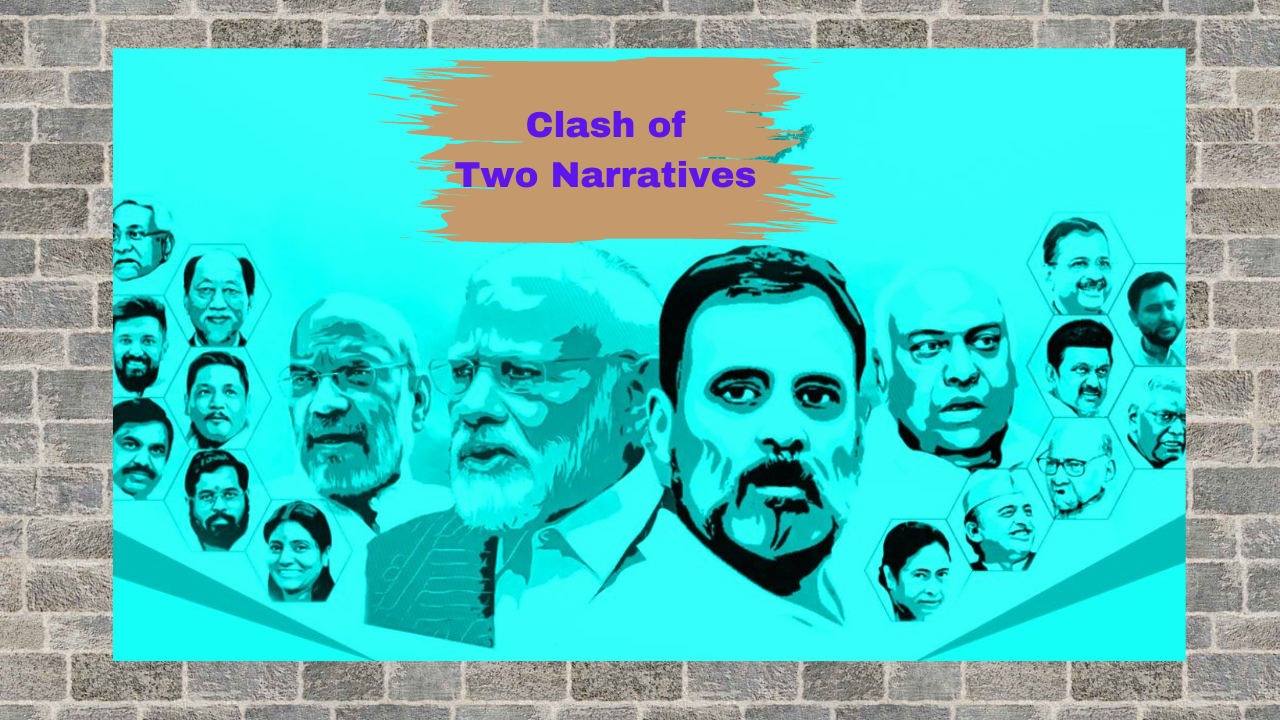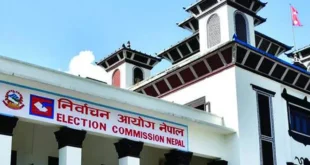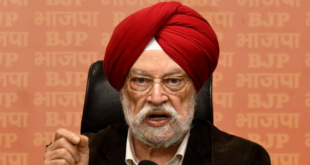 Prof. Ripu Sudan Singh
Prof. Ripu Sudan Singh
The entire picture of the 2024 Lok Sabha election has become clear and post-election analysis is going on in full swing. Many reasons are being cited for this lopsided result. The main reasons for the poor performance of the ruling dispensation in Uttar Pradesh include the party fielding tainted and inactive candidates, differences between the party and the Sangh, rise of casteism and religious identity, internal squabble within the party etc. The question is arising whether this is really a fight among parties or there is something else on which no discussion is taking place and the concerned commentators are shying away from discussion and are blaming by making someone a guinea pig.
Looking at it carefully, this is not just a fight of political parties. Had it been a fight between parties, then this fight which started between Muslim League and Congress in the first decade of 20th century, would have ended with the partition of the country in 1947. Today, when the atmosphere of 1947 is seen and created in the 2024 elections, then the matter is not as simple analysis as it seems. The whole fight is proving the English proverb ‘old wine in new bottle‘ true. The election was being held in 2024 but the election issue reflected that of pre-independence colonial India. This entire fight is of two major narratives which have been going on in India for more than a thousand years. The current election was a clash between two dominant narratives, which the opposition was doing intelligently and skillfully, but the ruling party was neither able to understand it nor was able to respond it properly. The ruling party got caught in the web of narrative that had been running for thousands of years and reached a point where the plaintiff himself stood in the dock of the accused.

The entire battle had turned into binary of holistic vs fragmented approach. The former was committed to taking India to the category of a developed country, while the later was determined to take India into a blind well of castes and sects as a part of ‘divide and rule’. This is a battle between transformative and transactional politics. A big game of Machiavellian politics was played in this election in which ultimately the nationalist forces of India joined together and saved the narrative of India and the attempt to create policy/governance paralysis failed. India narrowly escaped this assault.
This battle began long ago in 312 AD when the Roman Emperor Constantine was forced to accept Christianity. This tradition was carried forward by the declaration of Islam in Arabia in 610 AD, which had an immediate direct impact on India in 712 when an Arab invader Mir Qasim invaded Sindh and defeated king Dahir. Ever since, more than 600 million Indians have been converted in the South Asia. Two powerful interventions occurred in India began in 712. Its far-reaching effect can be seen in the establishment of the Slave Dynasty in Delhi in 1206. The second intervention took place in the 16th century with the East India Company getting permission to trade in the court of Shah Jahan. Its ill-effects were seen later with the victory of the British in the Battle of Plassey in 1757, which got permanently established 1764 through Battle of Buxar.
Christian Europe suffered the biggest setback in 1453 when Constantinople, the capital of the Eastern Roman Empire, was captured by the Caliphate Ottoman Empire. In 1453, a terrible massacre took place in Constantinople and the people of Europe had to flee to Italy and other parts of Europe. The land route between Europe and Asia was cut off. But the fall had a positive effect that Europe got disillusioned with its monotheistic God. It resulted into the renaissance which later got transformed into enlightenment, scientific and industrial revolution and brought Europe out of the darkness of the Middle Ages and into the new light of modernity. While Europe freed itself from the clutches of religion, the entire Central Asia, on the other hand, remained trapped in the religious web of the Middle Ages due to which no change could take place in the Islamic society and every attempt of change and reforms resulted in bloody violence.
If seen in this background, the election of 24 has been a choice of two thoughts, two perspectives and two opposite narratives. The consciousness of India, which was suppressed for thousand of years, revived in the 19th and 20th century due to which India could be saved in 1947 but the establishment of a religious state in the form of Pakistan could not be stopped. This entire battle is a battle between India’s global vision and Abraham’s global vision, without proper understanding of which, nothing can be inferred about the politics of India. The Abrahamic vision gave birth to three dominant faith system i.e. Judaism, Christianity and Islam in which Abraham occupied the role of a patriarch (religious father) and every thought process revolves around that. While Europe and America became free from the inertia of the Middle Ages and but they could not get free from the love of Abraham. Surprisingly, Abraham had no connection with Europe at all. He was basically a non-white person from West Asia. Europe, by adopting Christianity, strangled its idol-nature worshiping civilization with its own hands and got trapped in a false consciousness of a false narrative.
Being the most ancient, Bharat narrative has been global in its approach which was adopted by all the ancient world’s civilizations such as Egyptian, Babylonian, Roman, Greek, Persian, Chinese etc. The Indian narrative is universe, nature, human, life, knowledge centric whereas the Abrahamic vision is God, faith, Messianic-Prophetic, book-centric view and finally an after-death philosophy. The Abrahamic narrative is imaginary and unscientific which is governed by fabricated stories. Accordingly, the life on this earth is the result of the sins committed in the Heaven. The solution to get rid of the sins have been suggested by the words of the God sent in a book. In this way a big plan of faith was prepared by Abraham and other prophets. The political power was skilfully linked with the divine power and then an unholy alliance was formed between the two and the people were divided through church and mosque between believers and non-believers.
In the Indian worldview, there is the continuity of Dharma (not Religion) which is multi-god, multi-cultural, multi-lingual and multi-dimensional. Here, Brahma (the Universe) is present in every particle. Dharma (righteousness) takes all its instructions from nature and the Universe. Dharma itself is autonomous, free from conflict, eternal and everlasting. In the framework of Dharma, dissention and consensus is possible. It sees the truth in its entirety and does not talk about the ultimate truth but about the larger truth but does not deny the possibility of the absolute truth. In this worldview, Dharma can be attained by anyone and through any means. It is scientific, democratic, accommodative and inclusive. There is no feeling of mine (me) and thine (other). This is the reason that whoever came to India in the past was welcome .
The 2024 election in India is being analysed from the Western perspective which look at everything in parts (Tukde Tukde) and not in the larger perspective. The top leadership of the ruling dispensation understands this binary but has failed to explain it properly. On the other hand, the opposition is not only fully aware of this power-centred Western but also agrees with it and on that basis only they remained at the helm of power for a long time after independence. Other regional parties deprived of the pleasures of power, fought against Congress a long battle , have today put aside the slogans of non-familyism and non-Congressism and have come together in the power discourse and are united in a new alliance in the game of power, unaware and disinterested of the said narrative.
This is the reason that not only internal factors but also external factors have been active in the elections of India. If the election results are seen in totality, a different picture emerges. It is not without reason that even today the western world are not ready to accept democracy of India in good tase. Freedom House, an American NGO has called the Indian democracy a partially free democracy and V-Dam, a Sweden based NGO, has called India an electoral autocracy . Bharat world-view makes it clear that democratic values have existed in India since time immemorial and this is the reason why democracy is functioning successfully only in India among the new states created in the post-colonial era. The results have also proved that how powerful is the spirit of Indian democracy that in spite of all misinformation and slanderous propaganda, the election process is complete and a new Government is formed.
(Author is Professor of Political Science and International Politics BBAU, Lucknow)
 Jubilee Post News & Views
Jubilee Post News & Views





